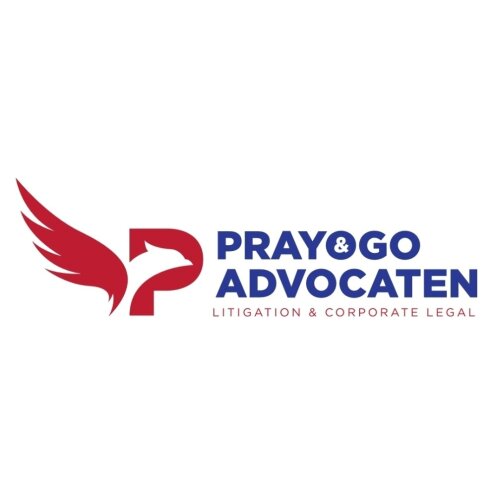Best Creditor Lawyers in Tangerang
Share your needs with us, get contacted by law firms.
Free. Takes 2 min.
List of the best lawyers in Tangerang, Indonesia
About Creditor Law in Tangerang, Indonesia
Creditor law in Tangerang, Indonesia, falls under the broader framework of Indonesia's commercial and bankruptcy legislation. Legal issues regarding creditors often involve debt recovery, insolvency, bankruptcy, and restructuring. The creditor law aims to protect the rights and interests of creditors when debtors fail to fulfill their repayment obligations.
Why You May Need a Lawyer
Engaging a lawyer when dealing with creditor law can be extremely beneficial, especially in complex legal situations. Situations where you may require legal assistance often include dealing with a large amount of debt, navigating bankruptcy filings, seeking debt recovery, and handling business restructuring. Professional legal consultation can help ensure your rights are protected and guide you through the often-complicated legal procedures.
Local Laws Overview
Local laws concerning creditors in Tangerang are primarily governed by the Bankruptcy Law of 1998 and the Company Law of 2007. Key aspects of these laws include the process for declaring bankruptcy, how assets are divided among creditors, and the rights and obligations of debtors and creditors. For example, debtors who fail to pay their debts within a certain time frame can be declared bankrupt by the Commercial Court. Creditors are then allowed to seize the debtor's assets to retrieve their owed amount, under the supervision of a court-appointed curator.
Frequently Asked Questions
1. How long does the debt recovery process take?
The length of the process depends on the case's specifics, the debtor's cooperation, and the court's workload. It can range from several months to years.
2. Can a debtor be imprisoned for not paying their debt?
No, debtors cannot be jailed simply for failing to pay off their debts. However, they can be penalized if they hide assets or intentionally engage in fraudulent activities.
3. What happens if a debtor declares bankruptcy?
When a debtor declares bankruptcy, a court-appointed curator takes control of their assets, which are then sold to pay off their debts. The debtor may lose most of their assets, except for certain exempt properties.
4. How can a lawyer assist with bankruptcy proceedings?
A lawyer can guide you through the complex legal procedures, ensuring that all documentation and work are done correctly while protecting your rights and interests.
5. Can a creditor collect debt after a debtor has declared bankruptcy?
Yes, the court-appointed curator will distribute the debtor's liquidation proceeds to the creditors based on the order of priority.
Additional Resources
Those seeking advice regarding debtor-creditor laws can refer to resources such as the Ministry of Law and Human Rights in Indonesia, the Tangerang District Court, or local legal aid organizations. Additionally, several online databases offer Indonesian legal documents, including the Hukum Online.
Next Steps
If you need legal assistance with creditor law, contact a reputable law firm with specialist knowledge in Indonesian commercial and bankruptcy law. Schedule a consultation, discuss your situation, and establish a plan of action. Ensuring you're legally informed and adequately protected should always be your primary concern.
Lawzana helps you find the best lawyers and law firms in Tangerang through a curated and pre-screened list of qualified legal professionals. Our platform offers rankings and detailed profiles of attorneys and law firms, allowing you to compare based on practice areas, including Creditor, experience, and client feedback.
Each profile includes a description of the firm's areas of practice, client reviews, team members and partners, year of establishment, spoken languages, office locations, contact information, social media presence, and any published articles or resources. Most firms on our platform speak English and are experienced in both local and international legal matters.
Get a quote from top-rated law firms in Tangerang, Indonesia — quickly, securely, and without unnecessary hassle.
Disclaimer:
The information provided on this page is for general informational purposes only and does not constitute legal advice. While we strive to ensure the accuracy and relevance of the content, legal information may change over time, and interpretations of the law can vary. You should always consult with a qualified legal professional for advice specific to your situation.
We disclaim all liability for actions taken or not taken based on the content of this page. If you believe any information is incorrect or outdated, please contact us, and we will review and update it where appropriate.








